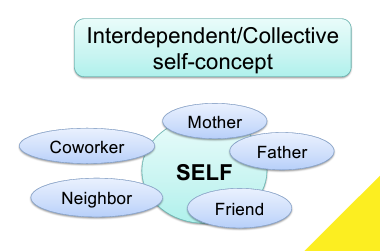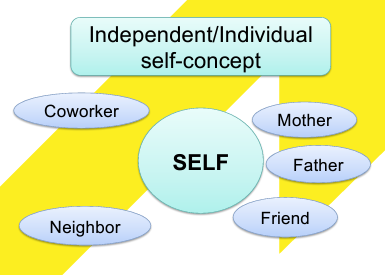Social Psychology Exam 1
1/88
There's no tags or description
Looks like no tags are added yet.
Name | Mastery | Learn | Test | Matching | Spaced |
|---|
No study sessions yet.
89 Terms
Social psychology
the scientific study of how people’s thoughts, feelings, and behaviors are influenced by the real or imagined presence of other people
how can someone influence us if they are not physically in our presence?
cultural influence, social media, literature, advertising, etc.
Social psychologists ask what kinds of questions?
Empirical questions
Empirical
based on observation or experience (can this question be scientifically tested?)
Personality Psychology studies…
individual differences
Sociology studies…
groups, institutions, society
Social psychologists study…
the power of the situation & how ppl interpret the situation, individuals within groups/institutions/society
attribution
explanation - why is someone behaving that way?
internal (dispositional) attribution
exhibiting a behavior because it’s who that person is; their personality
external (situational) attribution
exhibiting a behavior because of the situation the person is in; what’s going on around them
fundamental attribution error
overestimating the extent to which people’s behavior is due to internal factors and underestimating the role of external factors
why do people so commonly make the fundamental attribution error?
cognitive simplicity, lack of info, self-serving bias, etc.
how do we define “the situation”?
objective situation → interpretation of the objective situation → your behavior
naive realism
the belief that we perceive things “as they really are,” underestimating how much we are interpreting or “spinning” what we see
factors that might influence someone’s spin on a situation
emotional state, personal biases, cognitive style, perceived stakes, etc.
factors determining people’s construal of a situation
self-esteem motive, accuracy motive
self-esteem motive
the need to feel good about ourselves, affects how we see a situation
accuracy motive
the need to be accurate or correct, affects the way we see a situation
reasons for inaccuracy in construal
inability to access all relevant info, exposure to misinformation, mental shortcuts (heuristics)
the scientific method
procedure for gaining new knowledge by using empirical evidence
theory
hypothetical explanation of a phenomenon or observation (why?)
hypothesis
falsifiable prediction made by a theory
the scientific method is a __________ process
continuous
the process of the scientific method
initial idea/observation → theory (why is this happening?) → hypothesis (what should happen if my “why” is true? → test hypothesis (conduct a study and evaluate evidence) → initial idea → …
correlational studies test _______
associations (whether variations in one variable correspond with variations in another variable)
result of a correlational study
an association claim
limitation of a correlational study
correlation does NOT = causation, third variable problem
third variable problem
a potential third variable involved in the association between two actually unrelated variables
Correlation coefficient
r-value, ranges from -1 to 1
absolute value tells us the strength of a relationship
sign tells us the direction of the relationship
experimental studies test _______
causation
trust and confrontation - correlational
variables: measure trust, measure desire for future interactions
trust and confrontation - experimental
IV: confronted by friend or confronted by stranger
DV: measure how positive they evaluate the interaction
experiments always include a _________ variable
manipulated
Manipulating a variable
varying a factor to determine its causal power
independent variable
the factor/construct in an experiment that the researcher manipulates/controls
IVs always have at least _____ levels
2
Measure a variable
determining what effect or impact (if any) the IV has
dependent variable
the factor/construct in an experiment that the researcher measures after the IV
importance of random assignment
minimizes differences between groups of participants so it is more likely that the IV caused change in the DV
how do we randomly assign participants to levels of the iv?
online studies → can be built into the survey software
lab studies → flip a coin, random number generator
random assignment increases the __________ ___________ of an experiment
internal validity
internal validity
researchers’ ability to make a causal claim
other ways to enhance internal validity
minimize extraneous variables
all participants should have the same experience within the study except for the IV
how do we minimize extraneous variables
ensure participants get the exact same info and experience except for the level of the IV
training research personnel - practice and follow scripts
external validity
the extent to which the results of a study can be generalized to other situations and to other people
psychological realism
the extent to which psychological processes triggered in an experiment are similar to psychological processes that occur in everyday life
ways to promote psychological realism
try to get participants to feel like they are involved in a real event
do not reveal the true purpose of the study at first - come up with a cover story
ultimate goal to be able to generalize the finding to other people
a representative sample
the social psychologist’s dilemma
there is a trade-off between internal and external validity
to increase internal validity, the researcher imposes as much control as possible, which decreases generalizability. To increase external validity, the findings must be applicable in the real world, which often sacrifices control.
IRB
Institutional Review Board - ethics review, must approve all human subjects studies before researchers can start collecting data
informed consent
ethical practice before the study that specifies what participants will do in the study and lists the risks involved; participants must give consent to participate
debriefing
ethical practice after the study that explains the true purpose of the study, including any deception that was involved
self-concept
set of beliefs someone has about their own personal attributes
self concept is influenced by __________ and ___________
context, culture
self-recognition begins around…
18-24 months
as we age, self concept goes from __________ → ____________
concrete, physical → psychological, abstract
what happens when we increase the vividness of people’s future self?
less likely to cheat when looking at an aged-up version of yoursel
interdependent/collective self-concept
the way you view yourself is closely tied to your relationships to other people

independent/individual self-concept
the way you view yourself is thought of as independent of your relationships around you

collectivism and mask use results
States with higher levels of collectivism wore masks more, probably because they sensed greater reliance on/connection with those around them.
self-awareness cues
mirror
seeing ourselves in a pic/video
being in front of an audience (evaluation)
self-awareness theory
when we focus on ourselves, we evaluate and compare our behavior to our own standards and values
internal/private self awareness
attention to our inner states including thoughts, desires, traits, emotions
external/public self-awareness
attention to how we are perceived by other people (feeling self-conscious)
what influences how we explain our thinking/behavior
self-esteem motive
are the reasons for our feelings/behavior conscious to us?
usually outside of our conscious awareness
introspection illusion
incorrect assumption that we accurately understand our own motivations, desires, attitudes
mindfulness
reduces distorted thinking and reliance on self-esteem motive by allowing thoughts to drift by
social comparison theory
we learn about our own abilities and attributes by comparing ourselves to other people
when do we engage in social comparison?
when no objective standard is present
when there is uncertainty around your own attitudes/abilities
performance dimension or issue must be relevant to the self
to whom do we compare ourselves?
to those we see as similar/important to us (often depends on which of your core motives is activated - self-esteem, accuracy)
when we want to be accurate, we compare ourselves to others using…
upward social comparison
upward social comparison
comparing ourselves to people who we perceive as better than we are on a particular trait or ability
positive outcomes of upward social comparison
might be inspiring, help you discover and stick to goals
negative outcomes of upward social comparison
self esteem may suffer
when we want to feel good, we compare ourselves to others using…
downward social comparison
downward social comparison
comparing ourselves to people who are worse than we are on a particular trait or ability
positive outcomes of downward social comparison
boosts self-esteem and confidence, validates the feeling that you are good at something, may motivate you
negative outcomes of downward social comparison
you may not be motivated for growth if you assume that you’re better than everyone else
why did scientists find a positive correlation between social media use and depression in adolescents?
upward social comparison - easy to get sucked into the idea that other’s lives are more interesting than your own → self-esteem suffers
why do adolescents with more in-person interactions not experience as high a degree of depression?
in-person interactions are far less skewed and more in-line with reality
online interactions cannot replace in-person interactions
self-control
the ability to minimize immediate desires to achieve long-term goals
practices of self-control that DO NOT work
trying not to think about immediate desires
focusing on the importance of the long-term goal
practices of self-control that DO work
implementation intentions
adjust your environment to minimize temptations
implementation intentions
specific plans about where, when, and how they will fulfill a goal and avoid temptations
public self
image of the self conveyed to others (varies depending on context)
self-presentation
the attempt to get others to see us in a positive light
ingratiation
self-presentation strategy where you use flattery or praise to make yourself likable to another person, often someone of a higher status than you
self-promotion
self-presentation strategy where you highlight your strengths and achievements to be perceived as more competent, often in business settings